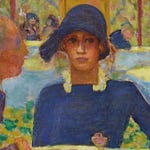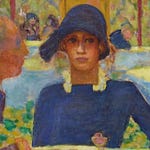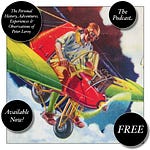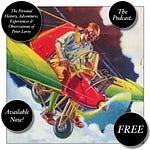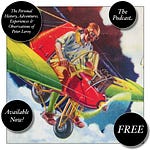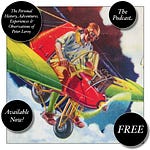5
“PETER,” called my mother from the bottom of the stairs, “are you still up?”
“Yes,” I called back to her. “What time is it?”
“Why, it’s after midnight,” she said. I heard her begin climbing the stairs. I stood and stretched and looked at the clock beside my bed. The face was a blur. I rubbed my eyes. They stung.
My mother appeared in the doorway. She too was a blur. The door frame wobbled a bit, and my mother swayed within it.
“Why Peter!” she said suddenly, clearly alarmed. “You’re asleep on your feet.”
She rushed to me, steadied me, held me in her arms, and guided me to my bed, where she sat me down on some of the papers from Mr. Summers’s box of notes for the Tars Manual.
“This is really too much,” said my mother, holding her hand to my forehead and rocking me gently. “They really are giving you too much homework. It’s terrible! A boy has to sleep!”
“This isn’t homework,” I said. “My homework’s all done. I finished it right after dinner.”
“Oh, Peter,” said my mother, “you’re pushing yourself too hard. Is this a science project or something?”
She looked around the room. I had papers everywhere—in neat piles on the floor, on my dresser, on my desk, on the window sills, on the lamps, on my bed, on my bedside table, tacked to the walls. I had found that there was a lot more to it than typing. The box of notes contained so many contradictions, repetitions, vague ideas, and false starts that I still seemed a long way from typing despite all the work I’d done.
“No,” I said, “it’s—”
She gave me a look in which sympathy was mixed with sternness. When she spoke, her tone was similarly mixed.
“It’s not another of those Larry Peters stories, is it?” she asked.
“No,” I said. “It isn’t that. Honest.”
The writing of Larry Peters stories had been the subject of a good talking-to from my father not long before. New books in the Larry Peters series appeared at a pace too slow to satisfy the desire of an addict like me, so I had begun trying to write stories about Larry on my own. When, full of pride in my undertaking and in myself for undertaking it, I told my parents what I had begun, my mother had at first been pleased.
“Oh, Peter,” she said. “What a wonderful idea. Maybe you’ll be able to sell them to the Larry Peters people.”
The idea that I, an eleven-year-old-kid, might be able to sell stories to the publisher of the Larry Peters series was, I knew, preposterous, and my mother would have agreed that it was preposterous if she’d thought about it, but it was a pleasant dream, so neither she nor I bothered to think about it. We let ourselves dream it, instead.
“Wouldn’t it be fun if one of the adventures was in Babbington?” I said.
“Oh, that would be fun,” said my mother.
“I could put my friends in it, and myself too,” I said. “We could all be in it.”
“You can’t do that, Peter,” said my father.
“What?” I said.
“You can’t do that. You can’t go putting people into stories.”
“Why not, Bert?” asked my mother.
“It’s not legal,” said my father. “You can get arrested for that sort of thing.”
“Oh, Bert,” said my mother.
“Oh, Bert, nothing,” said my father. “People can have you arrested for putting them into a story.”
“Why?” I asked.
“Why? Because they can, that’s all. They’ve got the law on their side.” Emphatically, he stuck his fork into a slice of meatloaf. With his thumb, he pushed the slice off the fork onto his plate. “Pass me the potatoes, Peter,” he said.
“Why would they want to have me arrested?” I asked, passing the mashed potatoes. “My friends would be happy to be in a Larry Peters story.”
“Don’t be so sure,” said my father, wagging his fork at me. “Look, I’ll give you a for-instance. Suppose you put me in a story and you put in this conversation we’re having right now. All right. Now, I’m tired. I’ve had a long day. Whitey’s damned son Porky spent all afternoon trying to get me to put money into some foolish restaurant he wants to open. I’m bushed, and I don’t feel like listening to any more crackpot ideas. So in your story, I’m going to look like a cranky, grouchy, old—” He searched for a noun.
“Killjoy,” my mother offered.
“Grump,” I suggested.
“Yeah,” he snarled. He bent to his meatloaf and potatoes.
“Oh, Bert,” said my mother, “I’m sorry you had a bad day. Tell us about it. Tell us about Porky and his restaurant.”
“Ella,” said my father, “forget the jackass and his restaurant. And you, young man,” he said, in an I-don’t-want-to-hear-another-word-about-it tone, pointing his fork at me, “forget about writing Larry Peters stories. You’ve got plenty of homework to keep you busy, and if that’s not enough, there are plenty of things you can do around the house.”
In Topical Guide 213, Mark Dorset considers Writing: Rough Drafts, Characteristics of: contradictions, repetitions, vague ideas, and false starts from this episode.
Have you missed an episode or two or several?
You can begin reading at the beginning or you can catch up by visiting the archive or consulting the index to the Topical Guide.
You can listen to the episodes on the Personal History podcast. Begin at the beginning or scroll through the episodes to find what you’ve missed.
You can ensure that you never miss a future issue by getting a free subscription. (You can help support the work by choosing a paid subscription instead.)
At Apple Books you can download free eBooks of “My Mother Takes a Tumble,” “Do Clams Bite?,” “Life on the Bolotomy,” “The Static of the Spheres,” “The Fox and the Clam,” “The Girl with the White Fur Muff,” “Take the Long Way Home,” “Call Me Larry,” and “The Young Tars,” the nine novellas in Little Follies, and Little Follies itself, which will give you all the novellas in one handy package.
You’ll find an overview of the entire work in An Introduction to The Personal History, Adventures, Experiences & Observations of Peter Leroy. It’s a pdf document.





